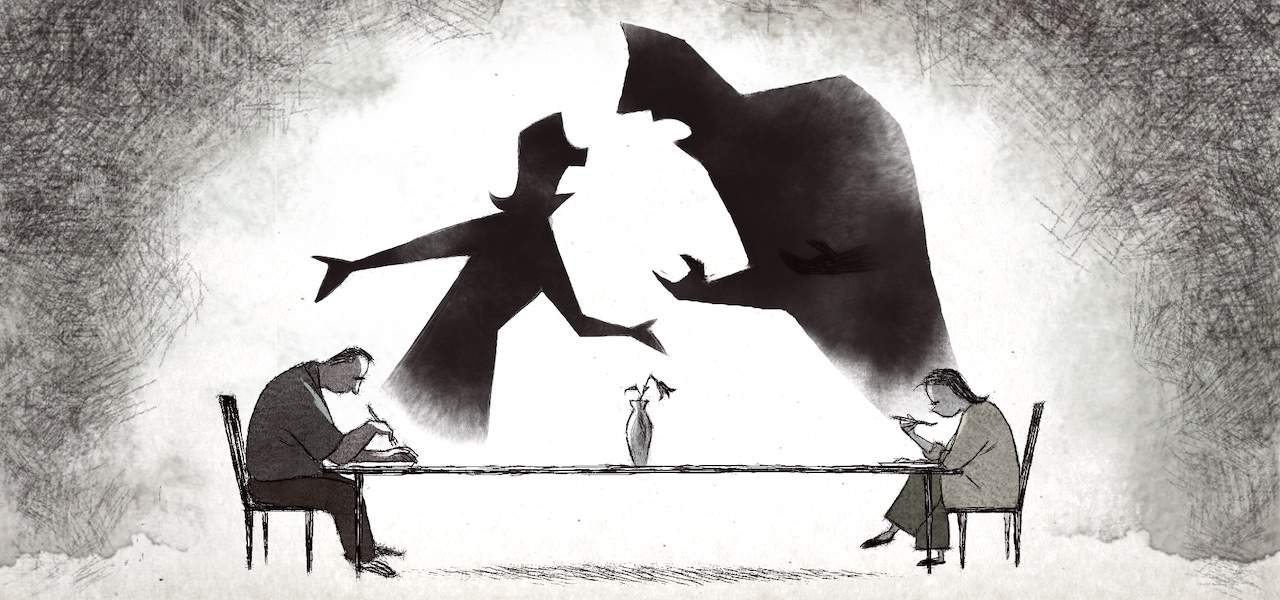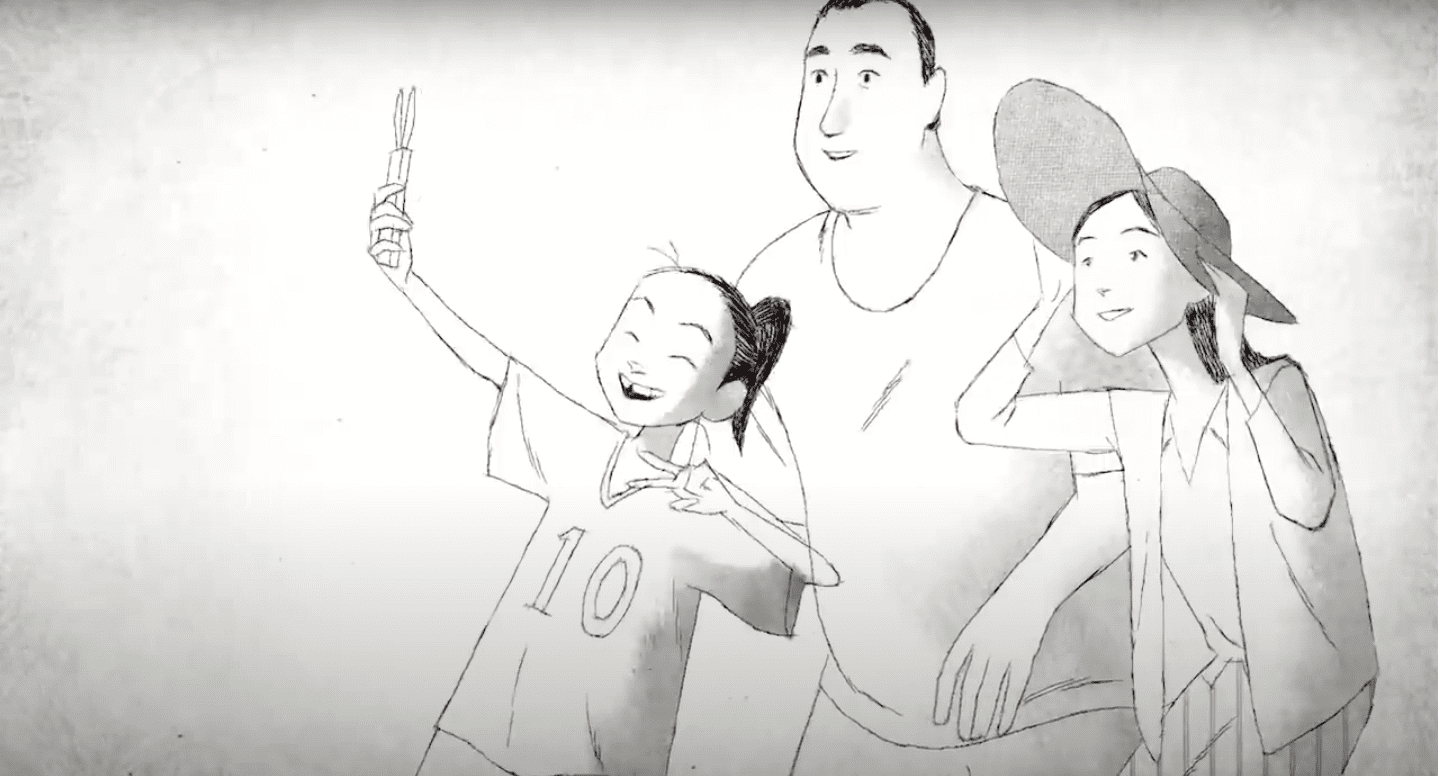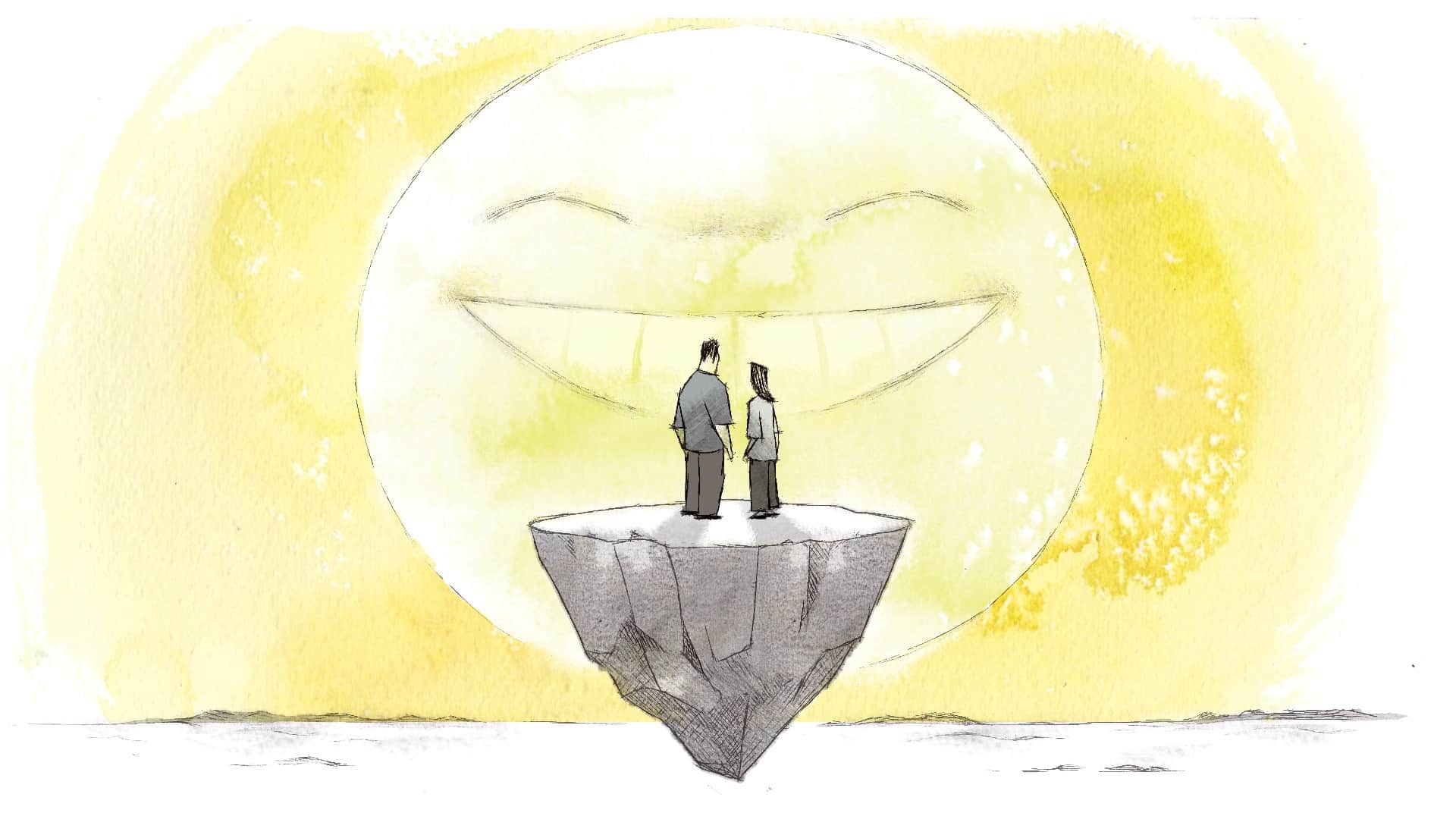What do you call parents who have lost a child? Jay Neugeboren in An Orphan’s Tale famously said that:
A wife who loses a husband is called a widow.
A husband who loses a wife is called a widower.
A child who loses his parents is called an orphan.
There is no word for a parent who loses a child.
That’s how awful the loss is.
There is no word, it seems, to describe exactly how heartbreaking, how painful it is to see your child’s life cut short, to see them pass before their time. And sometimes, the pain is so deep and so vast that it rips apart those left behind, causing irreparable damage to their relationship.

Mum and Dad eat in silence while Shadow Mum and Shadow Dad argue passionately.
In If Anything Happens I Love You, we are witnesses to the aftermath of the death of a couple’s daughter. The 12-minute animated short opens to Mum and Dad sitting at opposite ends of a table, heads hung low, listlessly pushing their food around their plate, uninterested in the meal in front of them. The two do not communicate, and they get up to leave before finishing their food. Mum goes to do laundry, while Dad retreats to his room to watch television. On the outside, the two are exemplar archetypes of grief—they move around their daughter-less world blank and lifeless, closed off and distant from the other. Numbed to their surroundings, they have closed the door on their emotions and become a shell of their former selves. Yet, as we quickly realize, these steely and aloof facades are precisely that—facades—belying a whirlwind of emotions stirring within them. As psychotherapist Lori Gottlieb explains:
People often mistake numbness for nothingness, but numbness isn’t the absence of feelings; it’s a response to being overwhelmed by too many feelings.
And sure enough, we see the expression of their many feelings in their shadows, who come alive and reveal to us what the two are truly feeling on the inside.
We see anger—shadow Mum and Dad arguing with each other and yelling at their physical selves to speak to the other.
Efforts at joy—shadow Mum and Dad attempting to lift the spirits of their physical selves…to no avail.
Grief—shadow Mum and Dad weeping openly.
Regret—shadow Mum and Dad frantically trying to stop their daughter from entering her school…the site of senseless violence and tragedy, where her little life was robbed by a school shooter.
We see evidence of an inner life that they cannot bring themselves to convey outwardly. Could they be experiencing survivor’s guilt? Could that explain why they’re disallowing themselves to experience the full spectrum of emotions, limiting themselves only to cool detachment?

Mum and Dad sit on their daughter’s bed and embrace each other.
Then comes a serendipitous moment: a soccer ball belonging to their daughter drops from the top of the washing machine, rolls towards her room, opens up the door and bumps up against her record player. As 1950 by King Princess starts to play, the shadow of their daughter emerges from the record player and begins to play with their cat.
The lyrics go: So I’ll wait for you, I’ll pray, I will keep on waiting for your love.
At this, Mum holds up their daughter’s shirt to Dad and they sit on her bed together. For the first time, we see them conversing with each other.

A family day out, before the death of their daughter.
If If Anything Happens I Love You seems like a typical tale of grief up to this point, here is where it does something different. As we are taken down memory lane together with the parents, we too relive the happier moments they shared with their daughter—a family road trip, a family dinner, a soccer game in the backyard together, their daughter’s 10th birthday—and realize that the couple’s enormous grief is born out of their enormous love for their daughter.
Where there is deep grief, there was great love.
The uplifting message of the animated short is this: Grief need not be the thing that separates; it can be the thing that binds. If grief is but love persevering, and love is what unites us all, then it makes sense that grief should also be what brings us together, not what drives us apart.

Mum and Dad are reunited by their love for their daughter.
A scene towards the end of the short best exemplifies this message: Mum and Dad weep and walk away from each other, while their daughter’s shadow tries to pull the two back together. When she fails, she changes tack and blows herself up so big that she engulfs her parents. With her newfound largeness, she literally pushes the two together so they are now standing together on the same plane, physically and metaphorically—they are finally on the same page. She is their sun, shining down on them.
The couple turn to each other and they continue to weep, but this time, they weep together. No longer allowing grief to keep them apart but draw them near to each other, because they now understand that grief is love, just in a different shape. With that, the three shadows—Mum, Dad, Daughter—merge into one and they are a family again. It is almost as though she were saying to them, “I give you permission. I give you permission to be happy together again, without me. Because I am still here. I live on in the love you have for me and for each other.”
